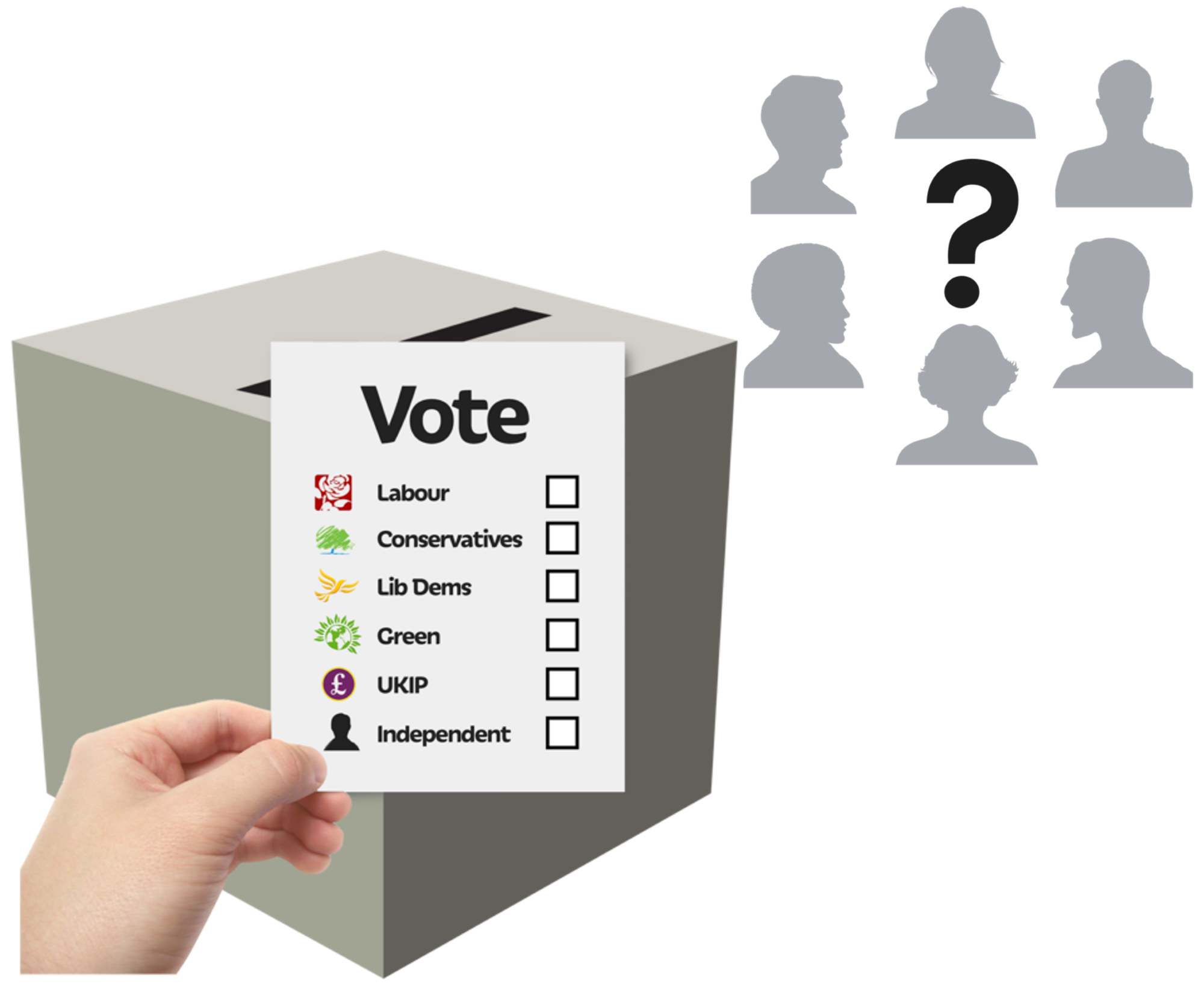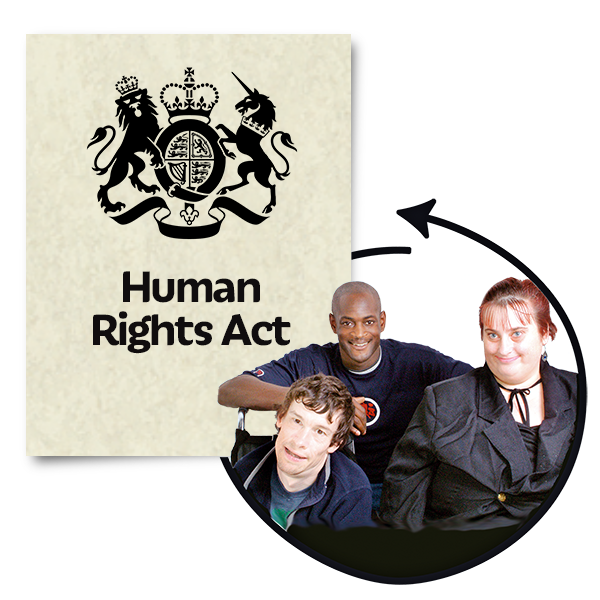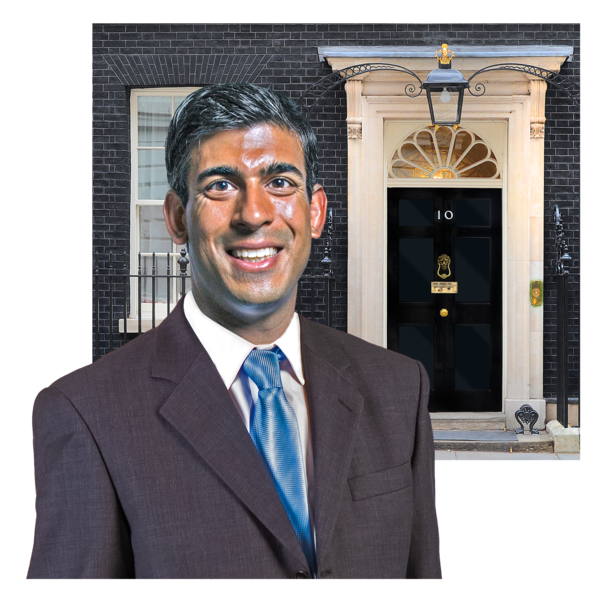Representatives and campaigners from the National Autistic Society and
learning disability
 A learning disability is to do with the way someone's brain works. It makes it harder for someone to learn, understand or do things.
charity Mencap delivered an open letter signed by 18,234 people to 10 Downing Street today, calling on Rishi Sunak to urgently reform outdated mental health
law
A learning disability is to do with the way someone's brain works. It makes it harder for someone to learn, understand or do things.
charity Mencap delivered an open letter signed by 18,234 people to 10 Downing Street today, calling on Rishi Sunak to urgently reform outdated mental health
law
 Laws are the rules that everyone in the country has to follow. If you don't follow the rules you can get in trouble with the police.
.
Laws are the rules that everyone in the country has to follow. If you don't follow the rules you can get in trouble with the police.
.
The Government
 The Government are the people who run the country. The Government decide how much tax people should pay and how things like the National Health Service (NHS) should work.
is running out of time to introduce its Mental Health Bill ahead of the next General
Election
The Government are the people who run the country. The Government decide how much tax people should pay and how things like the National Health Service (NHS) should work.
is running out of time to introduce its Mental Health Bill ahead of the next General
Election
 An election is when people choose who should be in charge of something. This could be in charge of a group, an area, or the country. People choose by voting. The person with the most votes wins.
, to ensure promised mental health reforms are made. The charities are calling for the Mental Health Bill to be included in the upcoming King’s Speech on 7 November 2023.
An election is when people choose who should be in charge of something. This could be in charge of a group, an area, or the country. People choose by voting. The person with the most votes wins.
, to ensure promised mental health reforms are made. The charities are calling for the Mental Health Bill to be included in the upcoming King’s Speech on 7 November 2023.
Assuring Transformation NHS Digital data published this month shows that in September 2023, 2,045 autistic people and people with learning disabilities are being held in inpatient mental health hospitals in England, of which 205 are children.
The Government promised to reduce the number of inpatients with a learning disability and/ or autistic people by 50% by March 2024. Latest analysis by Mencap shows that this commitment will not be achieved until 2029 at the earliest at the current pace of change.
Many of these people are stuck in these institutions without access to appropriate support, in environments that lead to avoidable physical and mental deterioration. They are often far away from their homes and loved ones, with the average length of stay being more than five years. Furthermore, many are also being subjected to overmedication, restraint, isolation and abuse in these settings.
The Government published its draft Mental Health Bill last year, which proposed vital changes to outdated laws that define
autism
 Autism is a disability. Autistic people find it difficult to understand what other people think and feel. They also find it difficult to tell people what they think and feel. Everyone with autism is different.
and learning disabilities as mental health conditions, as well as introducing better protection for autistic people and people with learning disabilities. But now, there are concerns that the Government is planning to drop the bill which would mean breaking its manifesto promise to “… make it easier for people with learning disabilities and autism to be discharged from hospital and improve how they are treated in law.”
Autism is a disability. Autistic people find it difficult to understand what other people think and feel. They also find it difficult to tell people what they think and feel. Everyone with autism is different.
and learning disabilities as mental health conditions, as well as introducing better protection for autistic people and people with learning disabilities. But now, there are concerns that the Government is planning to drop the bill which would mean breaking its manifesto promise to “… make it easier for people with learning disabilities and autism to be discharged from hospital and improve how they are treated in law.”
Currently, of more than 2,000 autistic people and people with a learning disability in mental health units, 92% are being detained under the Mental Health Act.1 The recent NHS Safe and Wellbeing Review found that more than half (57%) of autistic people and people with learning disabilities were in hospitals away from their homes and families, while 41% of people did not need to be in hospital and their needs could be met in the
community
 A community is the people and places in an area.
. These statistics show the hidden scandal facing some of the more vulnerable people in our communities, whose needs are not being met.
A community is the people and places in an area.
. These statistics show the hidden scandal facing some of the more vulnerable people in our communities, whose needs are not being met.
The Care Quality Commission’s State of Care report published last week also highlights the inappropriate detention of people with a learning disability and autistic people: “Our recent Mental Health Act Reviews… show that autistic people and people with a learning disability continue to be in hospital inappropriately when they should be receiving care in the community.” [1]
The National Autistic Society and Mencap are calling on the Government to bring the Mental Health Act Bill in and make it law to ensure:
-
Autistic people and people with learning disabilities cannot be detained in a mental health hospital under Section 3 of the Mental Health Act solely on the basis of having a learning disability or autism (without a co-occurring mental health condition).
-
There is a strong duty to provide community services to autistic people and people with a learning disability to prevent them from reaching crisis point in the first place and ensure those in hospital can be discharged in a timely way.
-
Recommendations from Care, Education
 Education is when you learn things. When you fill in a form to get a job, education means you write where you went to school, college or university.
and Treatment Review actions are made enforceable, so people can be discharged from hospitals sooner.
Education is when you learn things. When you fill in a form to get a job, education means you write where you went to school, college or university.
and Treatment Review actions are made enforceable, so people can be discharged from hospitals sooner.

Leo Andrade joined the charities to hand in the open letters. Leo’s son Stephen, 28, who has a learning disability and is autistic, was detained under the Mental Health Act for over six years, against the wishes of his family. Leo is campaigning alongside Mencap and the National Autistic Society to ensure autistic people and people with learning disabilities can no longer be wrongly locked up.
Leo Andrade said: “It was very emotional handing in the petition today. For seven long years I fought to get my son Stephen released from mental health hospitals. Nothing will ever undo the years of horror my family have endured trying to get the appropriate support for my son in the community.
“Now, I’m appealing to the Prime Minster, as the leader of our country and as a father, to reform the Mental Health Act as a matter of urgency. We need to help shape the future of every child like mine with a learning disability and / or autism in this country who has been or is at risk of being inappropriately detained in mental health hospitals.
“Right now, I want to speak up for those who are not able to themselves – whether that’s people being wrongly detained in units or other families going through the same nightmare - who have been silenced or fear any step out of line could jeopardise their loved ones being released.
“I will keep campaigning alongside people with a learning disability and autistic people and their families until we see the law changed.”
Leo was joined by the National Autistic Society Young Ambassador and mental health
advocate
 An advocate is a person who can help you have your say. An advocate can speak up for you if you find it hard.
, Zaynab Yasin Sohawon.
An advocate is a person who can help you have your say. An advocate can speak up for you if you find it hard.
, Zaynab Yasin Sohawon.
Zaynab Yasin Sohawon said: “The current mental health act feels like a punishment for being autistic. It’s completely unacceptable to section someone just because they’re autistic but if this bill doesn’t pass into law, the crisis of autistic people being stuck in mental health hospitals will only continue.
“The average time autistic people spend in inpatient mental health units is five and a half years. That’s five and a half years in chaotic, overwhelming and constantly changing environments that are not built for autistic people.
“We need action to prevent autistic people becoming lost in the system like this. Changing this would be life-saving.”
Mel Merritt, Head of Policy and Campaigns at the National Autistic Society, said: “This is one of the greatest
human rights
 Human
rights
Human
rights
 Rights are the things everyone should be allowed to do like have a say, or go to school.
are the rights that everyone has. These include the right to go to school and the right to start a family.
crises of our generation – and it must end now. Autism is not a mental health condition and mental health hospitals are not the right place for the vast majority of autistic people. Yet we’ve seen countless harrowing examples of people being locked away in seclusion and subjected to abuse in these settings.
Rights are the things everyone should be allowed to do like have a say, or go to school.
are the rights that everyone has. These include the right to go to school and the right to start a family.
crises of our generation – and it must end now. Autism is not a mental health condition and mental health hospitals are not the right place for the vast majority of autistic people. Yet we’ve seen countless harrowing examples of people being locked away in seclusion and subjected to abuse in these settings.
“The trauma caused to those who are wrongly detained in hospitals, scared and alone without the right support they need, is unimaginable – with a devastating and long-lasting impact on their physical and mental health.
“The Government must include the Mental Health Bill in the upcoming King’s Speech to urgently reform outdated mental health law so that autistic people get support in their homes and communities, with their families around them. This crisis cannot be allowed to continue.”
Paul Donnelly, Head of Campaigns and
Activism
 Activism is taking action to make change. Going to a campaign event with others, writing letters and speaking up are all ways to take action.
at Mencap, said: “This petition should be a wake-up call for the
Prime Minister
Activism is taking action to make change. Going to a campaign event with others, writing letters and speaking up are all ways to take action.
at Mencap, said: “This petition should be a wake-up call for the
Prime Minister
 The Prime Minister is the leader of the government.
. It shows overwhelming public support for the Government to urgently reform the Mental Health Act.
The Prime Minister is the leader of the government.
. It shows overwhelming public support for the Government to urgently reform the Mental Health Act.
“The vital reform pledged in the Government's 2019 manifesto must not become yet another broken promise to people with a learning disability and autistic people and their families
“Families like Leo’s have been campaigning for too long for change. People must be able to get the right support in the community and not be inappropriately detained in mental health hospitals. Mental Health Act reform is a crucial part of making this happen. "
The Rt. Hon Robert Buckland KC MP, and Chair of the All-Party Parliamentary Groups on Learning Disability and Autism, has heard first-hand from his constituents about the anguish and trauma caused by loved ones being locked up in mental health units and is urging the government to act now.
The Rt. Hon Robert Buckland KC MP said: “Mental Health legislation is not fit for purpose and long overdue reform. I stand with families, people with a learning disability and autistic people, in calling for a new Mental Health Bill. It is time to stop the inappropriate detention of people with a learning disability and autistic people. I hope the Prime Minister hears our call and brings this Bill before Parliament as a matter of urgency."
Notes to editors
For more information or to arrange interviews, please contact the National Autistic Society press office at press@nas.org.uk and 0207 903 3593, and the Mencap press office at media@mencap.org.uk and 0207 696 5414.
[1] https://www.cqc.org.uk/publications/major-report/state-care/2022-2023/inequalities#apld
About the National Autistic Society
-
The National Autistic Society is the UK’s leading charity for autistic people.
-
We are here to transform lives, change attitudes and create a society that works for autistic people.
-
Since 1962, we have been campaigning for autistic people’s rights and providing support and advice to autistic people and their families.
-
To find out more about the charity and autism, visit www.autism.org.uk
-
Follow the National Autistic Society’s social media accounts on Facebook, Instagram, Threads, X, LinkedIn and YouTube.
About autism
-
Autism is a lifelong disability which affects how people communicate and interact with the world.
-
At least one in 100 people are autistic which means more than 700,000 people in the UK.
-
Autistic people have a range of strengths and challenges. For example, some autistic people also have a learning disability and may need support with daily tasks like washing, cooking or exercising. Other autistic people are in full time work and may benefit from reasonable adjustments.
-
Autistic people may:
-
Face challenges with communication and social interaction
-
Be under- or over-sensitive to sounds, touch, tastes, smells, light and colours.
-
Have highly focused interests or hobbies.
-
Have repetitive or restrictive behaviour.
-
Experience intense anxiety around unexpected change and social situations.
-
Experience ‘meltdowns’ or ‘shutdowns’.
-
Read our guidance
 Guidance means being given clear instructions to be able to do something well.
on how to talk and write about autism.
Guidance means being given clear instructions to be able to do something well.
on how to talk and write about autism.
About Mencap
Mencap exists to ensure the UK is the best place in the world for people with a learning disability to live happy and healthy lives. We support people directly and campaign with people with a learning disability, their families and carers. We work to change laws, increase representation and fight for better health, social care and
employment
 Employment means having a job.
opportunities for the 1.5 million people with a learning disability in the UK.
Employment means having a job.
opportunities for the 1.5 million people with a learning disability in the UK.
What is a learning disability?
-
A learning disability is a reduced intellectual ability which affects someone for their whole life. Typically, people with a learning disability need more time to learn and process information. They may need extra support to develop skills, complete tasks and interact with others, or they may have more complex needs requiring round-the clock care. The level of support needed is different for everyone and may change during a person’s lifetime.
-
Learning disability is NOT a mental illness or a learning difficulty. Often, the term ‘learning difficulty’ is wrongly used in place of ‘learning disability’. Having a learning difficulty (such as ADHD or dyslexia
 Dyslexia is a learning difficulty. People who have dyslexia can find it hard to read, write and spell.
) may mean a person learns at a different pace or in a different way BUT – unlike a learning disability - it does not affect a person’s intellect.
Dyslexia is a learning difficulty. People who have dyslexia can find it hard to read, write and spell.
) may mean a person learns at a different pace or in a different way BUT – unlike a learning disability - it does not affect a person’s intellect. -
With the right support, most people with a learning disability can lead happy, healthy, independent lives. At Mencap, it’s our mission to remove societal barriers and shatter misconceptions to make this more possible for more people.
Mencap’s guide to reporting on Learning Disability
When it comes to creating content with people with a learning disability, we know many people feel nervous about saying and doing the wrong thing. Our guide for journalists, covers everything from up-to-date facts and figures to the right language to use. It also includes tips on how to work with people with a learning disability to gather the best content.